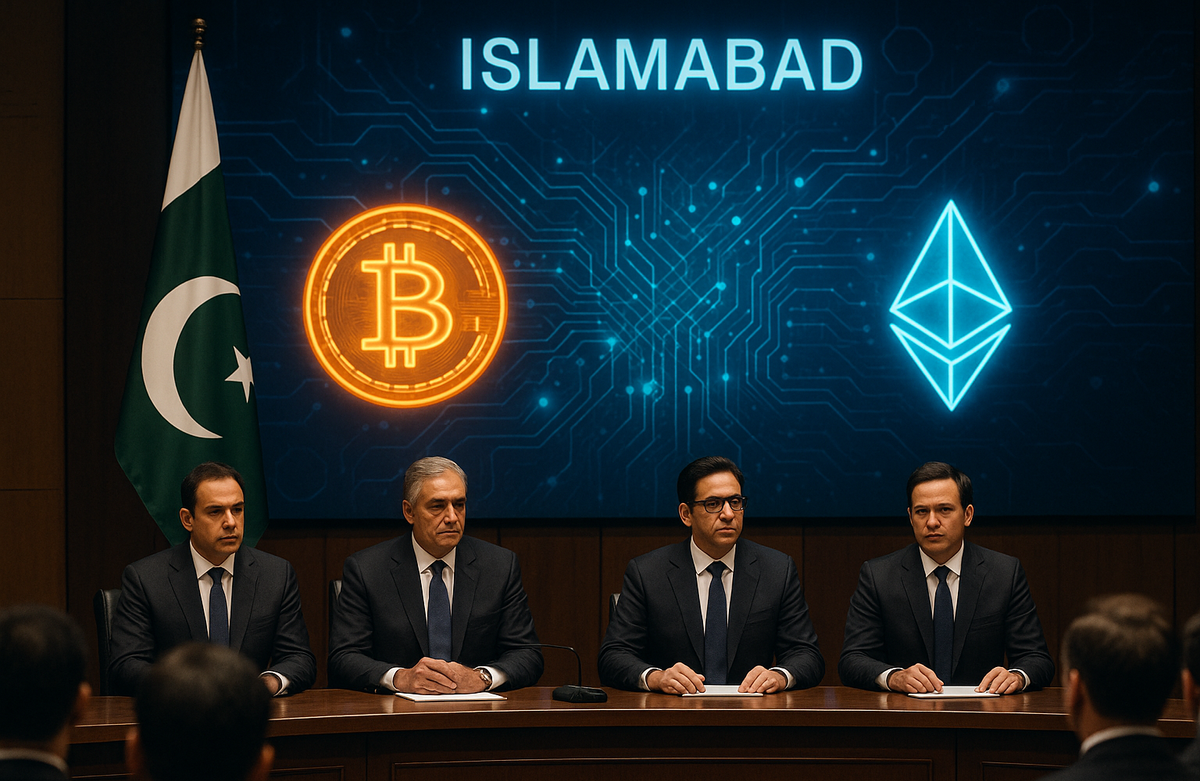Pakistan Virtual Assets Regulatory Authority (PVARA) Holds First Board Meeting
Pakistan takes a historic step as the Pakistan Virtual Assets Regulatory Authority (PVARA) holds its first board meeting, setting the stage for Bitcoin and crypto regulation in the country’s digital future.

Pakistan took a decisive step in its digital economy journey today as the Pakistan Virtual Assets Regulatory Authority (PVARA) held its first official board meeting in Islamabad. The meeting marks a historic moment, laying the foundation for a regulatory framework that will govern blockchain, virtual assets, and digital innovation in the country.
Finance Minister Calls It a “Transformative Milestone”
Finance Minister Muhammad Aurangzeb, attending as a special invitee, called the establishment of PVARA a “transformative milestone” in Pakistan’s economic evolution. He emphasized that virtual assets must be regulated responsibly, both to build trust and to protect the financial system from misuse.
Aurangzeb highlighted the government’s commitment to supporting PVARA in shaping Pakistan as a leader in the global virtual assets economy. According to him, the authority’s framework will not only encourage innovation but also align Pakistan’s financial policies with international standards set by the IMF, World Bank, and FATF.
Building Trust and Credibility
Special Assistant to the Prime Minister on Blockchain and Crypto, Bilal bin Saqib, reinforced that PVARA’s mission is two-fold: to foster innovation and opportunity while also safeguarding financial integrity.
“Our goal is to build domestic trust while enhancing Pakistan’s credibility as a forward-thinking player in the global virtual assets economy,” Saqib said.
Committees and Draft Licensing Framework
The meeting resulted in several key decisions:
- Formation of committees dedicated to:
- Sandbox experimentation
- Taxation policies
- Regulatory drafting
- International engagement
- Draft licensing framework: A preliminary version was shared with board members for consultation and will be finalized in the coming weeks. This framework is expected to cover crypto exchanges, wallet providers, and Bitcoin mining companies seeking to operate legally in Pakistan.
Tackling Cybercrime and Protecting Investors
A major highlight of the meeting was the approval of a dedicated complaint portal to be developed in collaboration with the National Cyber Crime Investigation Agency (NCCIA).
This portal will provide Pakistani citizens with an official channel to report scams, fraud, and disputes related to virtual assets, ensuring timely redressal and greater accountability in the sector.
Implications for Bitcoin Mining and Exchanges
Industry experts believe that once the licensing framework is finalized, crypto exchanges will be able to register locally, offering Pakistanis regulated access to Bitcoin and other digital assets.
Additionally, Bitcoin mining companies are expected to receive a green light under clear guidelines. However, regulators remain cautious, with the Finance Ministry noting that it will take at least three more months to finalize and align policies with global financial watchdogs.
A New Era for Crypto in Pakistan
PVARA’s first board meeting signals a turning point for Bitcoin and crypto regulation in Pakistan. With a government-backed authority now in place, the country is positioning itself to:
- Enable innovation in blockchain and Web3
- Attract investment in tokenized and digital asset projects
- Strengthen oversight against financial crimes
- Establish Pakistan as a serious player in South Asia’s crypto landscape
While challenges remain, such as ensuring compliance with FATF guidelines and building trust among investors, today’s meeting sets the stage for a structured and responsible crypto economy in Pakistan.




